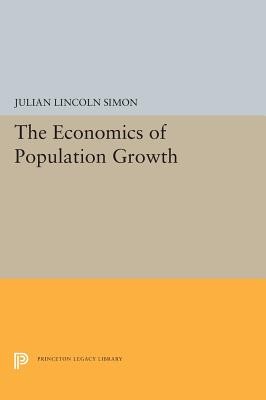
- We will send in 10–14 business days.
- Author: Julian Lincoln Simon
- Publisher: Princeton University Press
- ISBN-10: 0691656290
- ISBN-13: 9780691656298
- Format: 17.8 x 25.4 x 3.2 cm, kieti viršeliai
- Language: English
- SAVE -10% with code: EXTRA
Reviews
Description
Comparison with stationary and very fast rates of population growth shows modern population grwoth to have long-run positive effects on the standards of living. This is Julian Simon's contention, and he provides support for its validity in both more and less-developed countries. He notes that since each person constitutes a burden in the short run, whether population growth is judged good or bad depends on the importance the short run is accorded relative to the long run.
The author first analyzes empirical data, formulating his conclusions using simulation models. He then reviews our knowledge of the effect of economic level upon population growth. A final section of his book considers the framework of welfare economics and values within which population policy decisions are now made. He finds that the implications of policy decisions can prove inconsistent with the values that prompt their recommendation.
Julian L. Simon is Professor of Economics and Business Administration at the University of Illinois.
EXTRA 10 % discount with code: EXTRA
The promotion ends in 21d.10:28:21
The discount code is valid when purchasing from 10 €. Discounts do not stack.
- Author: Julian Lincoln Simon
- Publisher: Princeton University Press
- ISBN-10: 0691656290
- ISBN-13: 9780691656298
- Format: 17.8 x 25.4 x 3.2 cm, kieti viršeliai
- Language: English English
Comparison with stationary and very fast rates of population growth shows modern population grwoth to have long-run positive effects on the standards of living. This is Julian Simon's contention, and he provides support for its validity in both more and less-developed countries. He notes that since each person constitutes a burden in the short run, whether population growth is judged good or bad depends on the importance the short run is accorded relative to the long run.
The author first analyzes empirical data, formulating his conclusions using simulation models. He then reviews our knowledge of the effect of economic level upon population growth. A final section of his book considers the framework of welfare economics and values within which population policy decisions are now made. He finds that the implications of policy decisions can prove inconsistent with the values that prompt their recommendation.
Julian L. Simon is Professor of Economics and Business Administration at the University of Illinois.


Reviews